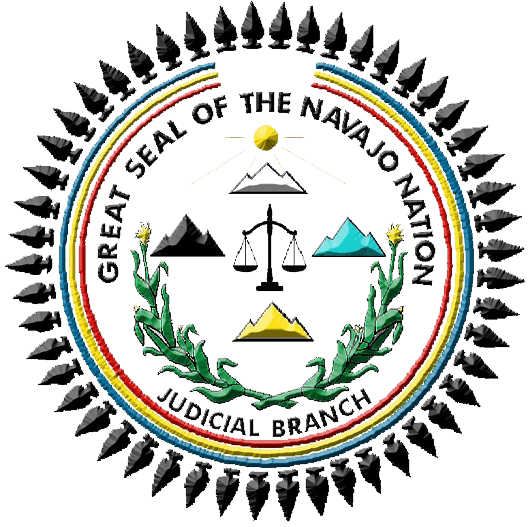Merged Probation and Peacemaking Functions

Merged Probation and Peacemaking Functions
17 N.N.C. § 1818(C) provides:
The Courts of the Navajo Nation may establish a program to merge the functions of probation and peace making to promote the rehabilitation of offenders and serve the interest of victims and the program may charge participants reasonable fee or assessment for serious services and expend such funds for probation and peace making functions.
Peacemaker Agreements
Peacemaker Agreements
Under Section 5.9(c) of the Uniform Sentencing Policy, ensuring compliance with Peacemaker agreements may be done by a probation officer with the consent of the court. Under Section 5.9(d), the court retains the power to suggest additional provisions in a peacemaking agreement and ask the defendant to agree with them. The court may require a probation officer to work with peacemakers to suggest satisfactory agreement provisions.
Joint Responsibilities
Joint Responsibilities
Ná bináhaazláo means providing parties with a sense of completeness or comprehensiveness. It also means fairness and doing whatever is necessary in coming to a comprehensive solution. Ná bináhaazláo is present through restorative justice as defined in our Mission.
There is a continuum between punishment and restoration, especially in view of the inescapable link between addiction, mental illness and crime. This continuum creates joint responsibility. The judge that performs sentencing also oversees the healing and return phases of justice. Navajo Nation courts have jurisdiction over the offender until all PPS supervision conditions are met. PPS and Peacemaking may both ensure offender (and family) access to social service and healthcare resources. For restoration of hozho, they may ensure open communications with victims and/or victims services. The Peacemaking Program further ensures that Diné bi beenahaz’áanii is followed and proper methods are used in ensuring community wellness, offender accountability, personal responsibility and restoration of hozho.
Merged Functions
Merged Functions
PPS and Peacemaking Program functions are merged in the following areas:
- Knowledge and application of traditional principles pursuant to Diné bi beenahaz’áanii;
- Goal of community wellness, personal responsibility, accountability, and restoration of hozho;
- Use of traditional methods to achieve the above goals whenever community conditions support these methods;
- Counsel offenders that a failure to comply with conditions or cooperate with monitoring pursuant to Peacemaking agreements will result in a report to the court and the maximum penalties allowed by law;
- Lead community education days;
- Conduct client-offender and family education and substance abuse awareness days;
- Provide resource lists to communities.
Other Functions
Other Functions
In addition, Peacemakers may be utilized as follows:
- Assist in communicating with client-offenders and families, e.g. elders;
- Assist in obtaining family input for juvenile supervision plans where permitted by court order;
- Assist in obtaining family input for adult supervision plans where permitted by court order (offender consent may be required);
- Assist in resolving offender-family and community issues that impact rehabilitation and restoration, where appropriate;
- Provide traditional culture education or counseling to adults and/or juveniles under PPS supervision, individually or in groups;
- With the agreement of the Director of Corrections, provide traditional culture education or counseling to adults and/or juveniles in detention, individually or in groups.
How Probation Officers May Assist Peacemakers
How Probation Officers May Assist Peacemakers
- Assist Peacemakers when a trial court uses them to make recommendations on sentences or a diversion plan, or to determine nályééh.
Hozhoji bahazahni
Hozhoji bahazahni
The conciliation function of peacemaking, hozhoji bahazahni, is not compatible with the policing function, hash kai ji bahazahni.
Reimbursement and Payment
Reimbursement and Payment
Peacemakers who perform the above functions shall be reimbursed mileage. Any fees required for their services shall be paid by participants which include offenders, victims, and/or families, or by PPS if the services have been requested by PPS and it is determined that the participants are unable to pay.
